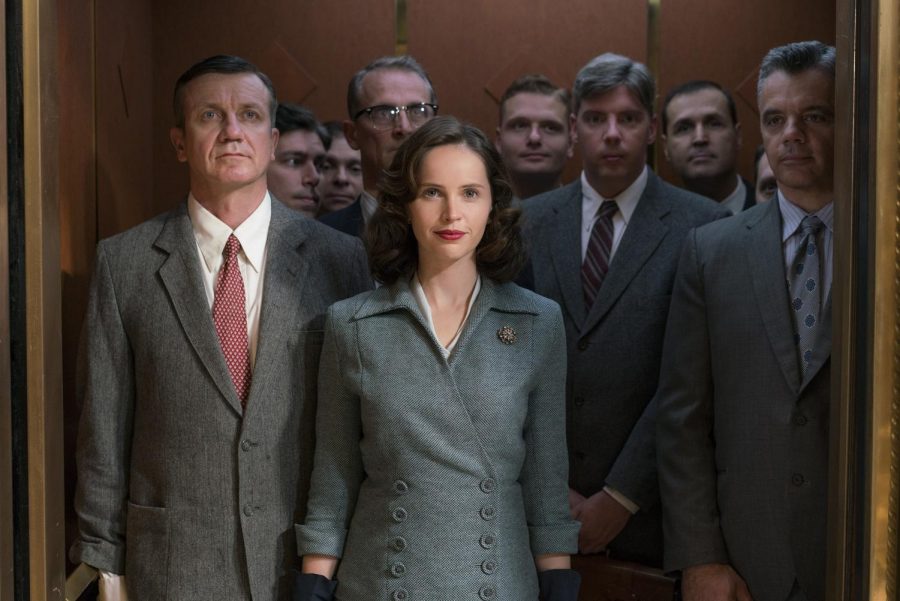Let’s Talk about “Sex”
RBG stands out as the only female in what had been a “man’s world.”
February 4, 2019
On the Basis of Sex, starring Felicity Jones, is a must-see film for all The Notorious RBG lovers. The movie praises the story of Ruth Bader Ginsburg’s fight against sexism in the American legal system after her graduation from law school. The film also places RBG’s family – most prominently her husband Marty, played by dreamboat Armie Hammer– at the center of her life, and the reason she fights so hard for equality for the next generation.
“Let’s go around the table and report who you are, and why you’re occupying a place that could have gone to a man,” states Erwin Griswold (Sam Waterston), the dean of Harvard Law School, within the first few scenes of the movie. Serving as the main antagonist, Griswold’s reactionary view of women’s roles in society serves as the encumbering status quo to which RBG fights back against. This struggle is evident in a number of ways, but most clearly when RBG is applying for jobs immediately after law school. With degrees from both Harvard and Columbia, her qualifications are not the thing that is turning employers away, but rather, it is her sex.
Instead of focusing on her entire life – as the documentary RBG does – On the Basis of Sex highlights RBG spearheading the 1972 court case Charles E. Moritz v. Commissioner of Internal Revenue, a landmark decision that served as the precedent for overturning laws that discriminate “on the basis of sex,” and RGB’s first argument in front of a court. RBG, with the help of her husband, who was fluent in tax law, defended Charles Moritz, a single man caring for his elderly mother, who was denied a tax deduction because caregivers, who were legally entitled to said deduction, were defined by law as being women, not men.
The court’s decision in favor of Mortiz and acknowledgment that the law discriminated on the basis of sex was not only one of many triumphs for the young RBG, but it symbolized the rapidly changing gender roles and how the American legal system should adapt to give all people, regardless of their sex, equal opportunity.
The film represents this new era of “the independent woman” most noticeably through RBG’s daughter, Jane (Cailee Spaeny). As Ruth struggles to prepare her argument, fights to gain the support of the American Civil Liberties Union, and even questions if the case is worth the uphill battle, Jane’s fire and passion for equal rights, conveyed through her attendance of protests and marches, unveils the reality for Ruth: that the actions of the next generation further prove her point. “We’re not asking you to change the country,” says RBG to the court of appeals, “that’s already happened without any court’s permission.”
As a woman fighting for equalities that were frustratingly ahead of her time, RBG’s story, and Jones’ portrayal, resonates with audience members who have no trouble linking the Me Too, Times Up, and Women’s Wave movements with the pronounced theme of gender equality in On the Basis of Sex. However, we are also reminded that the things women are fighting for today would not even have been fathomable if it weren’t for Ruth Bader Ginsburg and her incredible leap of faith in challenging commonplace societal norms and driving forth a movement that would last for decades and carry her all the way to the Supreme Court.

